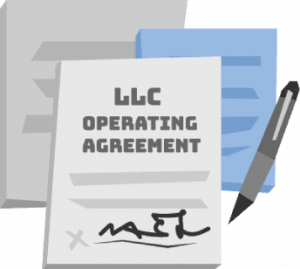How to Start an LLC in New Mexico
To start a limited liability company in New Mexico, you’ll need to choose a New Mexico registered agent, file formation paperwork with the New Mexico Business Services Division, and pay a $52 state filing fee. Below, we’ll take you through the steps to form your LLC.

1. Name Your LLC
First things first: Your LLC needs a name. New Mexico details its rules for naming an LLC in NM Stat § 53-19-3, but on a basic level, your LLC’s name must:
- be different from any business names registered or reserved in New Mexico.
- include an indicator like LLC, L.L.C., LC, limited liability company, or limited company.
Already have a business name in mind? Check to see if it’s available.
Reserving a business name in New Mexico
If you have a business name but you’re not ready to pull the trigger on forming an LLC, you can reserve the name in New Mexico for up to 120 days. This will protect your name from being used by another company. You’ll just need to file the Application for Name Reservation and pay the $20 filing fee.
Getting a New Mexico DBA
Your LLC’s legal name is the name written on your Articles of Organization. An assumed business name is any name other than your LLC’s legal name under which you do business.
You aren’t able to register a DBA in New Mexico, but you can list any DBAs you’re using on your Articles of Organization or business license. When you do, the state will include your DBA in a searchable database. That said, listing your DBA in the state’s database doesn’t legally prevent anyone else from copying it, since DBAs aren’t regulated by the state. But it may discourage other businesses from doing so to avoid confusing customers.
Reserving a domain name
Before you register an LLC name, consider reserving a matching or complementary domain name as well. This saves you from finding out that your preferred domain isn’t available when you decide to launch a business website a little later. You can add free domain registration for a year when you start an LLC with Northwest.
Trademarking your New Mexico LLC name
The simple act of registering your New Mexico LLC name doesn’t give you an exclusive legal right to use that name. If another business uses your name, there’s not a ton you can do if you haven’t registered for a trademark. In New Mexico, you can trademark your name in the state by filling out a trademark application and paying a minimum fee of $50. If you want to protect your name nationwide, you can submit a federal trademark.

2. Appoint a New Mexico Registered Agent
All LLCs are required to designate a registered agent. Registered agents accept important legal and state mail on your behalf. You must also list your registered agent’s information on your Articles of Organization.
New Mexico registered agent requirements
The requirements for a registered agent in New Mexico are spelled out in NM Stat § 53-19-5, but basically, your registered agent must:
- maintain a physical address in New Mexico
- be present during regular business hours
- agree to accept and quickly forward your legal and state mail
Using a registered agent service
You are legally allowed to act as your own registered agent in New Mexico, but that doesn’t mean you should. Hiring a professional registered agent service gives you several advantages, notably privacy. When you act as your own registered agent, you also have to list your own address so the state knows where to send legal mail. But when you hire a registered agent service, that service can list their business address on the formation paperwork instead.
If you hire Northwest as your registered agent, you’ll get instant notifications and same-day scans of all state and legal mail. The sooner you can view your legal mail, the sooner you can contact your attorney and start formulating a response.

3. Submit NM LLC Articles of Organization
Once you’re ready to start your LLC, you can submit your Articles of Organization to the Secretary of State. New Mexico only accepts formation paperwork electronically via the e-file system.
To complete your Articles, you must have the below information:
- Company name. Include some version of LLC.
- Effective date. Optional: You can delay the date your LLC starts for up to 60 days.
- Duration. Add a future end date for your LLC or choose Perpetual for it to last indefinitely.
- Purpose. New Mexico doesn’t require a description of your business purpose, but if you do include a statement of purpose, it has to be specific, rather than a generic business purpose.
- Registered agent and office. Someone designated to accept legal mail on behalf of your LLC.
- Email address.
- Principal business address. Only needed if different from your registered agent address.
- Secondary address and mailing address. Optional.
- Manager information. Optional, but if you decide to add it later, you’ll have to pay $50 to file an amendment or restatement. Tip: Check Same as Principal Place of Business to skip adding manager addresses.
- Member information. Optional, but the bank may require you to list at least one member. Tip: Check Same as Principal Place of Business to skip adding member addresses.
- Organizer. Whoever signs and submits this form.
Member-managed vs. manager-managed LLCs
In a member-managed LLC, members (owners) are tasked with handling day-to-day operations, like hiring and firing employees, entering into contracts, and managing the bank account. In a manager-managed LLC, members appoint or hire a manager to run the LLC.
For help with deciding which management structure will work for you, see our page on LLC Member Vs Manager.
Start Your New Mexico LLC Today!


4. Write an LLC Operating Agreement
Your operating agreement is a how-to guide for running the business. It outlines rules for everyday decisions (like how membership transfers get handled) as well as events that generally only happen once (like the dissolution of the business).
You can customize your operating agreement to meet your LLC’s unique needs, but there are some topics that should be covered no matter what:
- initial investments
- profits, losses, and distributions
- voting rights, decision-making powers, and management
- transfer of membership interest
- dissolving the business
Aside from that, you can include whatever you wish as long as it doesn’t violate either your Articles of Organization or New Mexico state law. Northwest offers free, attorney-drafted New Mexico operating agreement templates you can use if you aren’t sure where to start, though it’s also a good idea to consult with your own attorney before you finalize the agreement.

5. Get an EIN
An EIN (short for Employer Identification Number) is a bit like a Social Security number for your business. The IRS uses this number to identify your business when you file taxes. You can get an EIN by going through the IRS website, or by mailing in a paper form.
If you feel like doing it yourself, you can learn how to get an EIN for your LLC. If you’d rather not deal with the hassle, you can hire us to do it for you.

6. Next Steps
After you register your LLC, you’ll need to ensure your business remains compliant with New Mexico state and local regulations. Here are a few next steps to know about.
Opening a bank account
Every LLC should have a bank account, even if you’re the only owner. Creating a business bank account allows you to keep your LLC and personal finances separate, which is necessary for maintaining your LLC’s limited liability status.
To open a bank account for your LLC, you’ll need to bring the following to the bank:
- LLC Articles of Organization (a copy is fine)
- the LLC’s operating agreement
- the LLC’s EIN
- an LLC Resolution to Open a Bank Account (if your LLC has more than one member)
Keep in mind that different banks will also have different requirements, so you should also call ahead to find out what else you’ll need to bring.
New Mexico tax requirements
LLCs in New Mexico with default tax classification are considered pass-through entities, meaning profits pass through the LLC itself to the owners (members). The members then report profits as earnings on their personal tax returns and pay the federal self-employment tax rate (15.3%). LLCs can file paperwork with the IRS to switch tax designation and be taxed as an S-corp or C-corp.
LLCs in New Mexico need to register with the NM Taxation and Revenue Department. They also need to file the New Mexico Information Return for Pass Through Entities each year.
New Mexico charges a gross receipts tax of 5.125% statewide, and some local tax districts charge their own gross receipt taxes as well.
Licenses and permits
Not all New Mexico businesses need a license or permit, but you will if you work in certain industries. Here are some examples of licenses that may be required:
- Professional licenses or certifications for certain professions that serve the public, like athletic trainers, public accountants, and broker-dealers.
- Contractor licenses for construction companies.
- Environmental licenses and permits for activities regulated by the New Mexico Department of the Environment, including businesses that handle or produce food, install septic systems, or generate toxic waste.
GET STARTED TODAY

7. New Mexico LLC FAQs
It costs $52 to file Articles of Organization and start an LLC in New Mexico.
If you opt for default tax classification, your LLC will be taxed as a pass-through entity. This means the profits pass through the members (owners). The members must then report those profits on their personal tax returns. If you want, you can also file paperwork with the IRS to be taxed as an S-corp or C-corp.
Once received by New Mexico’s Business Services Division, your Articles of Organization will be processed within 15 days.
New Mexico does not recognize Series LLCs, although many states and territories do, including:
- Alabama
- Arkansas
- Delaware
- Illinois
- Indiana
- Iowa
- Kansas
- Minnesota
- Missouri
- Montana
- Nevada
- North Dakota
- Ohio
- Oklahoma
- Puerto Rico
- South Dakota
- Tennessee
- Texas
- Utah
- Washington DC
- Wisconsin
- Wyoming
No, you do not. Unlike most states, New Mexico does not require annual reports for LLCs .
The procedures for transferring ownership of an LLC should be detailed in your operating agreement. It should include information on partial sales, which is when one member sells their membership interests, as well as complete sales, which is when the entire business is sold.
No, there are no laws on the books requiring an LLC to adopt an operating agreement in New Mexico. That said, an operating agreement is vital—without it, your LLC is automatically governed by New Mexico’s default LLC statutes. Having a legally sound operating agreement may even help you in resolving disputes or court cases.
*This is informational commentary, not advice. This information is intended strictly for informational purposes and does not constitute legal advice or a substitute for legal counsel. This information is not intended to create, nor does your receipt, viewing, or use of it constitute, an attorney-client relationship. More information is available in our Terms of Service.
Ready to Start an LLC in New Mexico?







